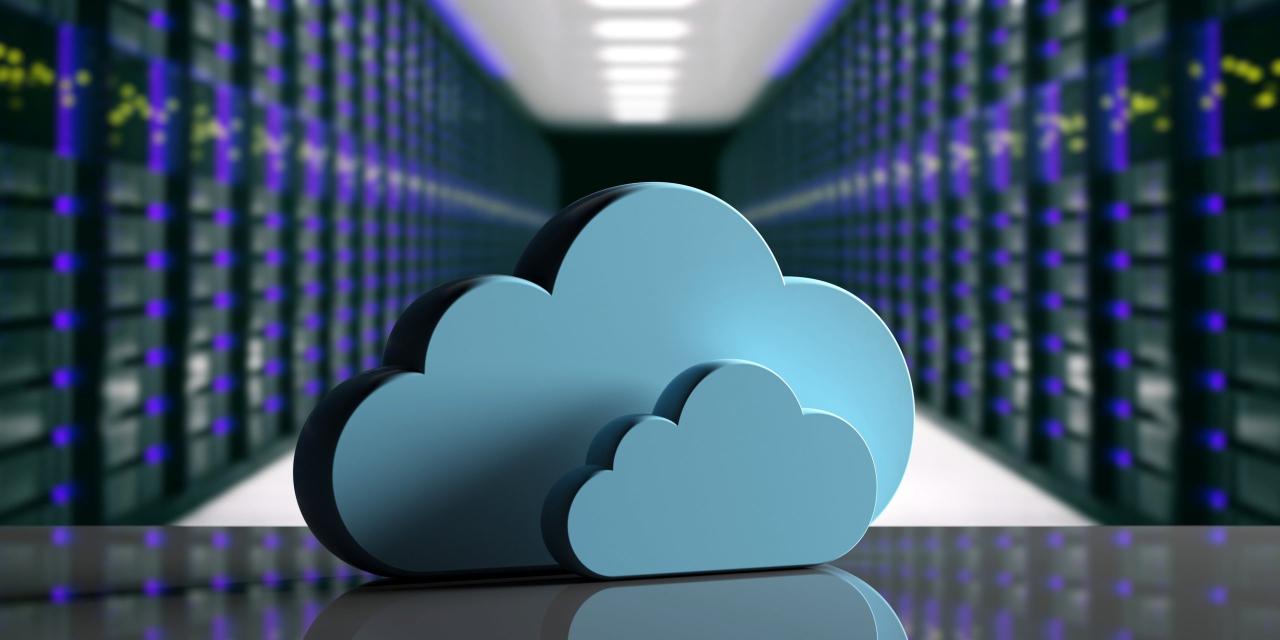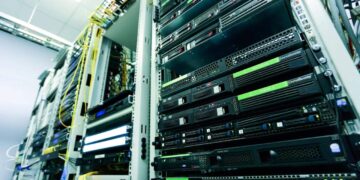In the relentless pursuit of digital dominance, businesses and individuals face a fundamental choice that can define their success: the server infrastructure that powers their online presence. For decades, the debate between cloud hosting and dedicated servers has been a central theme in the technology world. Each option offers a unique value proposition, with distinct advantages and disadvantages that cater to different needs, budgets, and technical capabilities. The landscape has shifted dramatically in 2025, with new technologies and market trends reshaping the rules of this timeless showdown.
This extensive article will serve as your definitive guide to understanding the intricate dynamics of cloud versus dedicated servers. We will go beyond a simple comparison, diving deep into the core philosophies of each, exploring the latest technological advancements, and providing a detailed analysis of when one is a better choice over the other. Our goal is to equip you with the knowledge to make an informed, strategic decision that aligns perfectly with your goals for performance, security, cost, and scalability.
The Cloud Computing Revolution in 2025

Cloud computing is more than just a buzzword; it’s a paradigm shift in how we think about IT infrastructure. It represents a model where computing resources—from servers and storage to databases and networking—are delivered on-demand over the internet. Instead of owning and maintaining physical hardware, you “rent” resources from a third-party provider like Amazon Web Services (AWS), Microsoft Azure, or Google Cloud Platform (GCP).
The power of the cloud lies in its distributed, virtualized nature. A single physical server can be partitioned into multiple virtual machines (VMs), each running independently. This allows providers to offer highly flexible and scalable resources to a vast number of users. The key trends shaping the cloud landscape in 2025 include:
A. The Rise of Cloud-Native Architectures: Modern applications are increasingly being built from the ground up for the cloud. This involves using microservices, containers (like Docker), and orchestration tools (like Kubernetes). This architecture ensures applications are highly scalable, resilient, and portable across different cloud environments.
B. AI-Driven Services: Cloud providers are embedding artificial intelligence and machine learning directly into their services. From AI-powered security to predictive analytics and automated resource management, AI is making cloud environments smarter, more efficient, and easier to manage.
C. Multi-Cloud and Hybrid Cloud Strategies: To avoid vendor lock-in and enhance disaster recovery, businesses are no longer relying on a single cloud provider. A multi-cloud strategy involves using services from multiple public cloud providers, while a hybrid cloud combines a private, on-premise infrastructure with a public cloud.
D. Sustainability and Green Computing: With growing environmental concerns, cloud providers are investing heavily in sustainable data centers, using renewable energy and more efficient cooling technologies. This is a significant factor for companies looking to reduce their carbon footprint.
Advantages of Cloud Hosting
A. Unmatched Scalability and Flexibility: This is arguably the biggest selling point of the cloud. If your website or application experiences a sudden surge in traffic, you can instantly scale up your resources—add more CPU cores, RAM, and storage—with a few clicks. Likewise, you can scale down during low-traffic periods to save money. This pay-as-you-go model is perfect for businesses with variable or unpredictable workloads, such as e-commerce stores during holiday seasons or live event broadcasters.
B. Cost-Effectiveness (for Variable Workloads): With cloud hosting, there is no large upfront capital expenditure on hardware. You only pay for the resources you consume, on an hourly, daily, or monthly basis. This can be significantly cheaper for startups and small to medium-sized businesses (SMBs) who don’t have the budget or need for a full dedicated server. The ability to scale down also prevents paying for unused capacity.
C. High Availability and Reliability: Cloud providers build their infrastructure with redundancy in mind. If a server or even an entire data center fails, your application can be automatically moved to a healthy one in a different location, ensuring minimal downtime. This is a level of redundancy that is extremely difficult and expensive to achieve with a single dedicated server.
D. Reduced Management Burden: Managed cloud services offload the burden of server maintenance, security patches, hardware upgrades, and other administrative tasks to the provider. This allows your team to focus on core business activities and application development rather than infrastructure management.
Disadvantages of Cloud Hosting
A. Cost Uncertainty (for Predictable Workloads): While the pay-as-you-go model is great for flexibility, it can lead to unpredictable monthly bills. Data transfer fees, API calls, and other hidden costs can quickly accumulate, leading to “bill shock.” For companies with stable, high-traffic websites, a fixed-cost dedicated server can often be more economical in the long run.
B. Performance Inconsistency (The “Noisy Neighbor” Effect): In a cloud environment, you are sharing physical hardware with other users. While virtualized environments are designed to isolate resources, a resource-intensive workload from another user on the same host can sometimes impact your application’s performance, a phenomenon known as the “noisy neighbor” effect.
C. Limited Customization and Control: While you have control over your virtual machine’s operating system and software, you do not have root access to the underlying hardware. This can be a limitation for very specific use cases that require fine-grained control over the physical server and its components.
D. Potential Security and Compliance Concerns: While major cloud providers offer robust security, the shared responsibility model means that a significant portion of security is still your responsibility. Misconfigurations, especially in a complex multi-cloud environment, can create vulnerabilities. Additionally, data sovereignty and compliance regulations can be more challenging to navigate when your data is spread across multiple physical locations.
The Power of the Dedicated Server in 2025
A dedicated server is a physical machine whose entire resources—CPU, RAM, storage, and network connectivity—are exclusively reserved for a single customer. It’s the digital equivalent of owning your own house rather than renting an apartment in a large building. This traditional hosting model has seen a resurgence in popularity, especially among large enterprises and high-traffic applications, as businesses re-evaluate their long-term infrastructure strategies.
In 2025, dedicated server technology is more powerful and efficient than ever. Key advancements include:
A. High-Performance Processors: The latest generation of Intel Xeon and AMD EPYC processors offers an unprecedented number of cores and threads, making them ideal for high-performance computing, AI, and big data analytics.
B. NVMe Storage: The widespread adoption of NVMe (Non-Volatile Memory Express) SSDs provides lightning-fast I/O performance, which is critical for applications that require rapid access to data, such as databases and e-commerce platforms.
C. Advanced Cooling and Energy Efficiency: Dedicated server providers are implementing advanced cooling solutions, including liquid cooling, to manage the heat from more powerful components, ensuring consistent performance and lower energy consumption.
D. Enhanced Security and Compliance Features: Modern dedicated servers come with advanced security features, including built-in hardware security modules (HSMs) and robust physical security in data centers. This makes them a preferred choice for industries with strict compliance requirements like finance and healthcare.
Advantages of Dedicated Server Hosting

A. Unrivaled Performance and Consistency: With a dedicated server, you get 100% of the hardware resources. There are no “noisy neighbors” and no resource contention. This guarantees consistent, high-speed performance, which is vital for applications where latency and speed are critical, such as online gaming, financial trading platforms, and high-traffic e-commerce sites.
B. Total Control and Customization: You have full root access to the server, allowing you to install any operating system, custom software, and security configurations you desire. This level of control is essential for developers and IT teams who need to fine-tune their environment for a specific application or workload.
C. Enhanced Security and Compliance: By not sharing a server with other users, you eliminate a major security risk. You have complete control over who has access to your server and can implement custom firewall rules and security protocols. This makes dedicated servers a go-to choice for handling sensitive data and meeting stringent regulatory compliance standards.
D. Predictable Cost Model: Dedicated servers come with a fixed monthly or annual cost. This predictable pricing makes budgeting straightforward and can be more cost-effective for businesses with stable, long-term resource needs, as you don’t have to worry about unexpected usage-based fees.
Disadvantages of Dedicated Server Hosting
A. Higher Cost of Entry: The upfront cost for a dedicated server is significantly higher than a basic cloud hosting plan. You are paying for the entire machine, regardless of whether you are using all of its resources. This can be a major barrier for startups and small businesses.
B. Limited Scalability: While you can upgrade components, scaling a dedicated server is a manual and time-consuming process. To scale up, you often have to migrate to a more powerful machine, which can involve downtime. You also can’t easily scale down to save money during low-traffic periods.
C. Increased Management Responsibility: Unless you opt for a fully managed dedicated server plan, you are responsible for all aspects of server management, including software updates, security patching, monitoring, and backups. This requires a certain level of technical expertise and can be a significant time commitment.
D. Single Point of Failure: Unlike the redundant nature of the cloud, a dedicated server is a single physical machine. If the hardware fails, your service will go down. While providers offer service level agreements (SLAs) for uptime, it still requires a more robust disaster recovery plan on your end to mitigate this risk.
The Right Choice for Your Use Case
The showdown between cloud and dedicated servers is not about one being definitively better than the other. The winner is determined by the specific requirements of your project. Here’s a detailed breakdown of which server is best for common use cases in 2025.
A. E-commerce:
- Cloud: Ideal for new e-commerce sites or those with unpredictable traffic patterns. It allows you to start small and scale up seamlessly during peak seasons like Black Friday or holiday sales without over-provisioning.
- Dedicated: The better choice for large, established e-commerce platforms with consistently high traffic and a need for predictable performance. It ensures fast page load times and a smooth user experience, which is crucial for conversions.
B. Gaming Servers:
- Cloud: Good for smaller, casual game servers where player count is low and latency is not a primary concern. The flexibility to spin up a server for a specific gaming session and then shut it down is a cost-effective solution.
- Dedicated: The industry standard for competitive gaming and large-scale multiplayer games. Dedicated servers provide the low latency, high bandwidth, and consistent performance needed for a lag-free gaming experience.
C. Big Data and AI:
- Cloud: Excellent for big data analytics where data processing is bursty or temporary. Cloud providers offer specialized services and GPUs for machine learning and AI workloads on a pay-as-you-go basis, which is great for research and development.
- Dedicated: Preferred for mission-critical AI models and big data platforms that require continuous, intensive processing. Having a dedicated server with a high-end GPU ensures consistent, predictable performance without the “noisy neighbor” effect.
D. Website Hosting:
- Cloud: The perfect solution for blogs, portfolios, and marketing websites that may experience traffic spikes from viral content. It’s a scalable and affordable way to start.
- Dedicated: The best choice for high-traffic corporate websites, news portals, or media-rich sites that require guaranteed performance and uptime to maintain their brand reputation.
E. High-Security Applications:
- Cloud: Can be configured to meet security requirements, but requires careful management and understanding of the shared responsibility model.
- Dedicated: The preferred choice for applications handling highly sensitive data, such as financial records, medical information (HIPAA compliance), or other proprietary data that must be isolated from other users.
Conclusion
The decision between a cloud server and a dedicated server is a strategic one that hinges on a deep understanding of your operational needs, budget constraints, and long-term vision. In 2025, this choice is more nuanced than ever, with both technologies evolving to meet a diverse range of demands. The cloud, with its unparalleled scalability, flexibility, and pay-as-you-go model, remains the ideal starting point for businesses with dynamic, unpredictable workloads and a desire to minimize upfront capital expenditure. It’s the perfect playground for startups, a haven for developers, and a lifesaver for applications that need to handle sudden, massive spikes in traffic.
On the other hand, the dedicated server has reasserted its dominance as the champion of predictable performance, uncompromising security, and ultimate control. For established enterprises, high-traffic websites, and mission-critical applications where every millisecond of latency and every point of security matters, the dedicated server is an investment in stability and reliability. Its fixed-cost model provides clear financial planning, while its exclusive hardware ensures consistent, high-powered performance free from the unpredictability of a shared environment.
Ultimately, the server showdown has no single winner. It is a dual victory, where each contender excels in its own arena. The key is to see them not as rivals, but as tools in a digital toolkit. For some, a single solution will suffice. For others, the future lies in a hybrid approach, where a dedicated server handles the core, mission-critical workloads, while the cloud provides scalable resources for supplementary or bursty tasks. By carefully weighing the pros and cons presented in this guide and aligning them with your specific business goals, you can make the most intelligent decision to power your digital future and ensure success in an increasingly competitive online world.










